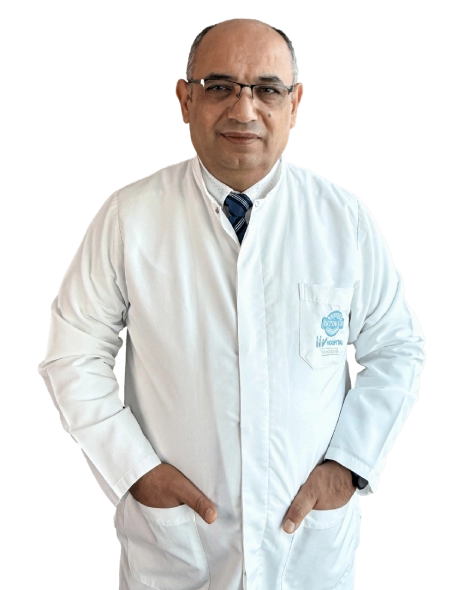Psychiatry
Last Update Date: 9/18/2025 10:23:45 AM
What Is Psychiatry
Psychiatry is a branch of medicine that examines, diagnoses and treats the mental health, emotional state and behavior of individuals. Psychiatrists are health professionals who specialize in issues such as psychological disorders, emotional problems, mental illnesses, and behavioral problems. Treatment methods may include speech therapy, drug therapy, and other psychotherapy techniques. Psychiatry aims to improve the quality of life and cope with mental health problems by focusing on the mental health of individuals.
Which Diseases does the Psychiatric Department Treat
The department of psychiatry deals with various mental health problems, emotional disorders and behavioral problems. Some of these diseases are:
- Depression: It is characterized by symptoms such as long-term sadness, loss of energy, hopelessness.
- Anxiety Disorders: It include conditions such as general anxiety, panic attack, obsessive-compulsive disorder (OCD).
- Schizophrenia and Other Psychotic Disorders: Serious mental disorders that cause symptoms such as disconnection from reality, hallucinations and delusions.
- Bipolar Disorder: Bipolar Disorder is a mood disorder that alternates between manic and depressive episodes.
- Obsessive-Compulsive Disorder (OCD): It is characterized by repetitive obsessions and repetitive behaviors aimed at controlling these obsessions (compulsions).
- Eating Disorders: It includes problems with eating habits and body perception, such as anorexia nervosa, bulimia nervosa.
- Post-Traumatic Stress Disorder (PTSD): A stress and anxiety disorder that occurs after traumatic events.
- Attention Deficit Hyperactivity Disorder (ADHD): It includes problems with attention deficit, hyperactivity and impulse control.
- Personality Disorders: A group of disorders that include abnormalities in patterns of permanent thoughts, emotions, and behavior.
- Addiction and Substance Use Disorders: These include problems with alcohol, drugs, and other addictive substances.
Liv Hospital Psychiatry
Diagnosis and treatment of psychiatric problems are carried out at Liv Hospital Psychiatric Clinic in the light of current, scientific and medical developments.
Personalized treatment
Liv Hospital psychiatrists and psychologists evaluate and diagnose the patient with a teamwork approach. Experienced specialist doctors listen to you carefully and follow a specially arranged treatment protocol according to your needs.
Medication and psychotherapy
Clinical interviews, examinations, laboratory tests and imaging methods are used for diagnosis. In the detected diseases, treatment is carried out with medication and psychotherapy (spiritual treatment) methods.


















.webp)









.png)

.png)
.png)